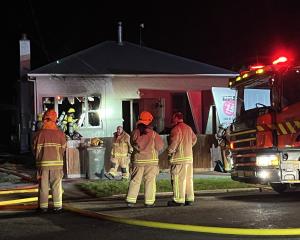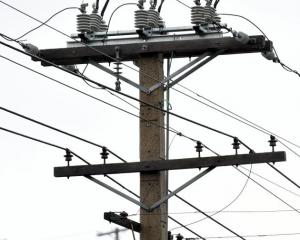How the Waitaki District Council will spend its limited roading budget will be influenced by draft policies which came under public scrutiny yesterday.
The council was considering about 60 public submissions on proposed changes to roading policies, with the possibility of a major impact on rates bills.
For example, changes to carriageway width standards could add up to $418,000 a year to the roading budget, some of which would be offset by Land Transport NZ subsidies.
Yesterday, many of the ratepayers who presented their submissions were pushing for improvements to the roads they lived on or used, but others, such as Land Transport New Zealand, approached the policies at a higher level.
Some policies dated back to 1990 and had to be reviewed because of changes in traffic and road use; for example, greater numbers of milk tankers on roads because of the increase in dairying.
The reviews cover the roading network hierarchy (which designates roads as strategic, arterial, collector or local), carriageway width standards (how wide roads should be), land transport strategy and seal extensions.
The Department of Conservation wanted safeguards on standards for roads leading to public conservation land, or land likely to be added to its holdings, to ensure access for recreation and tourism operators.
Resource Management Act conservation officer Bruce Hill listed 12 roads the department wanted to be consulted on before the council changed standards, including those on the east side of the Kakanui Mountains, at Herbert, Macraes and Omarama.
However, some councillors asked if the department would contribute to the upkeep of those roads, given it did not pay rates.
Mr Hill said that was one of the reasons it had requested a discussion, but he was not aware of government plans to make extra money available to the department to fund that.
North Otago Federated Farmers said while the rates of an average house could rise $40 a year, on an average farm the rise could be $568 a year, as a result of the draft policies.
Farmers were already paying high roading rates and wanted to ensure they received a service that met their expectations.
The council must prioritise spending on roads in close association with ratepayers and remain committed to proposed projects over the long term to provide certainty, the association said.
The council was told Hampden farmer Phillip Nicolson paid about $5500 a year in rates for roading and the council needed to provide a roading service to those paying high rates, which needed to be spread equally across the district.
Tutu Hill Rd resident Rose Ilton presented a petition signed by 18 residents which asked the council to seal about 500m of road.
There were 10 houses on the road and a new one being built.
She said the residents had been paying rates for some time and should get something back.
Others put forward similar reasons for having their own roads upgraded, including some on the Waitaki Plains, where a big increase in dairying has put greater pressure on the network.












